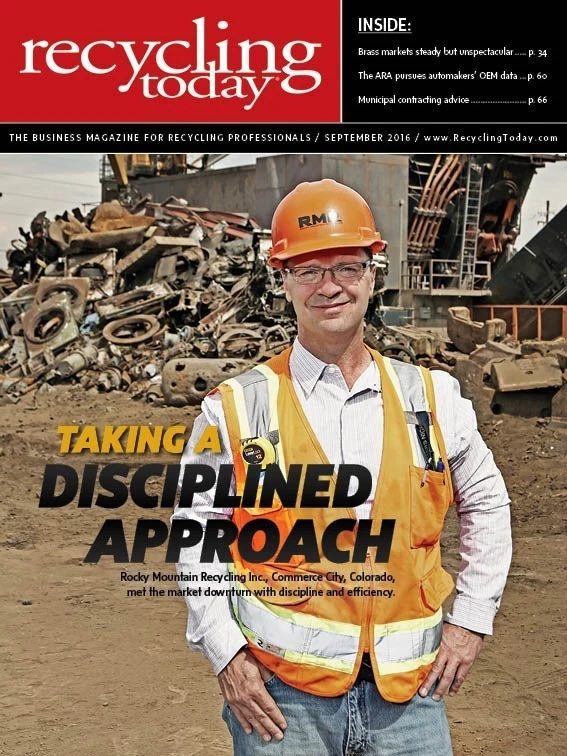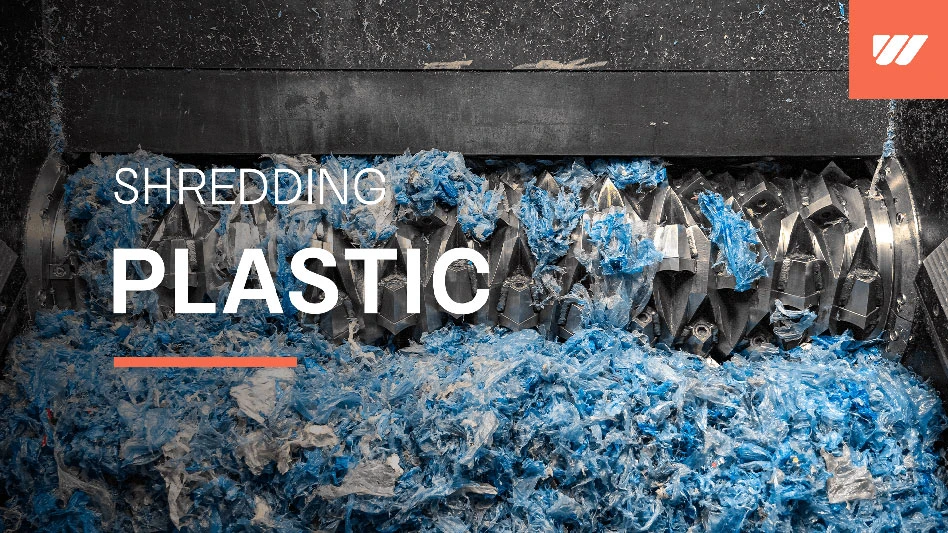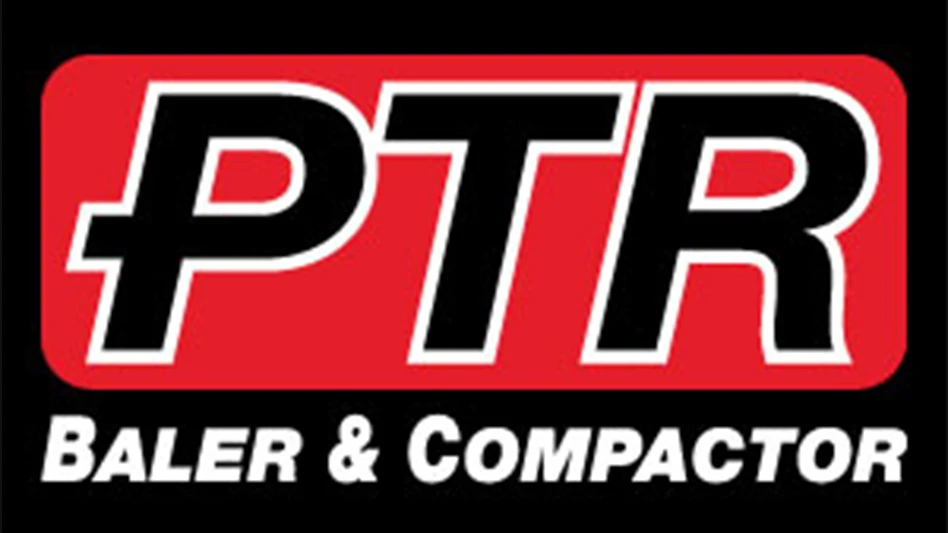
Recycling markets are moving targets and create volatility that often is difficult to manage. It is not always possible to anticipate changes in the markets; however, you can control contracts in an effort to negate or minimize risk.
Material recovery facility (MRF) operators generally are responsible for finding markets for the materials they process. In doing so, the revenues they receive often vary, and the negotiated agreement with the municipality may end up costing the processor or the municipality money. To keep from getting into a financially unsustainable operation, a few things should keep in mind.
Managing Costs
One of the most important and critical components in a contract is how to manage costs. In some contracts, the MRF operator keeps the revenues received from the sale of the recovered recyclables. This income supplements processing fee revenues and often helps to control costs for the MRF’s customers. In other instances, the municipality realizes the revenues received from the sale of the recovered recyclables. In some instances the municipality will enter into processing contracts with a fixed or flat rate fee. Fixed rates offer a payback rate or processing fee based on separate commodities. Flat rates normally provide one price regardless of the material. When recyclables are purchased from the municipality for a set price or processed for a flat fee, the processor must factor in unpredictable market fluctuations.
Unlike fixed-rate plans, some MRFs may agree to a sliding-scale agreement. In this agreement, the value of each material increases or decreases in response to market fluctuations. These rates are determined according to the published sources of market activity by geography. These published sources show the market trend of the location and will not necessarily reflect actual prices negotiated by the local processor. MRF operators may offer to negotiate a sliding-scale rate agreement based on the actual prices received for the materials they process. This can be beneficial if the processor is aggressive in finding stable outlets and the best prices for all of the materials the municipality delivers.
Processors also can consider a hybrid agreement, which includes components of the fixed/flat rate and the sliding-scale approach. The MRF operator can set a flat processing fee for all material received that is adjusted periodically based on the material composition and the market price for each commodity. A greater percentage of the market price is allocated to the municipality, and a lower percentage is allocated to the processor. In this situation the market price will result in a positive adjustment for the municipality through a return on the sale of recyclables. When the adjustment has a negative impact, the municipality pays the MRF for processing. This hybrid agreement can be one of the fairest approaches to revenue sharing because it offers the processor assurance that it can cover the cost of processing during the course of the contract and provides the municipality with a greater direct share of the revenues.
Other Considerations
Beyond rate structure, other considerations when negotiating a contract include:
1. Understand state law and how it impacts communities. Many state laws have provided the opportunity to make changes in hauling and processing contracts, particularly over the past 10 years. Processors must be aware of the different state laws that not only affect their facilities and operations but also the communities they serve. As an example, California has evolved over the years, with its focus shifting from achieving a diversion mandate of 50 percent by 2000 (as established by AB 939 in 1989) to calculating compliance based on pounds per person per day (as established by SB 1016 in 2006). The state also has established mandatory recycling (AB 341 – 2010) and organics diversion (AB 1826 – 2015) for multifamily and commercial programs that create a sense of urgency for the community to comply. These laws require processors to provide proper reporting systems, divert as much clean material as possible and bring innovation to the community. Understanding these state laws provides direction when developing a new contract or when extending a current one.
2. Consider new technology and its financial impact. Technology is changing the recovery of recyclables dramatically. As part of contract negotiations, consider what the return on your investment would be if you were to update your facility. The capital and operational costs will certainly have an impact on tipping fees, but more importantly, so will the shift in markets. It’s important to evaluate whether the upgrades would provide cleaner material while addressing market fluctuations. The municipalities that request proposals for processing material are more sophisticated and typically have entire sections and exhibits dedicated to describing what’s expected. So much of the recovery comes from very costly processing activities that municipal managers are trying to ensure ratepayers are getting what they paid for.
3. Agree to a realistic list of accepted materials. Cities will request a long list of materials that should be accepted for recycling. While developing this list with the municipality, make sure you look at previous years and how the market has affected the sale of your material. Make sure to cover yourself by allowing only those materials that are as close to guaranteed value as you can. Allow for this list to be flexible with language that states if a material has no market, your company is not penalized. Design a process that can be clear in an evaluation from the client.
Unlike fixed-rate plans, some MRFs may agree to a sliding-scale agreement. In this agreement, the value of each material increases or decreases in response to market fluctuations.
4. Consider reporting requirements and their effect on your current system. Municipalities are now spending much more time analyzing data and are thinking of reporting in terms of raw data outputs rather than in the form of preformatted reports that are limited in content and come in hard copy so they cannot really work with the information. It is important to understand what the municipality requires and what you can provide in your reports, as well as what changes might come down the road. Know your database and reporting system capabilities and whether the reporting would require a new or upgraded database or process. Be thoughtful concerning what you agree to and always confirm you understand the purpose of the report so the outcome corresponds to what the client expects.
5. Ensure the ability to reject loads that don’t meet your specifications. At times, loads you receive may be highly contaminated. Be sure to incorporate a clause that provides direction on the process used to evaluate the material, how to manage the material once it has been reviewed, what steps must be taken to follow up with the company that delivered the material and the load rejection process. Include costs associated with rejected loads.
6. Consider how residue is factored into commodity calculations. How a processor manages residue significantly can affect revenue received or payment expected by a municipality in the case of share agreements.
7. Design a sustainable tipping fee that accommodates change. Consider how often markets change; negotiating a tipping fee that will sustain your operation through the market changes is important.
Sponsored Content
Still relying on manual sorters?
Let AI do the heavy lifting. Waste Robotics delivers reliable, high-performance robots tailored for complex waste streams. They require minimal maintenance, are easy to operate, and are designed to boost your recovery rates. Smarter sorting starts with the right partner. Waste Expo Booth #1969 & REMA #2843
Click here to see our robots in action!8. Labor equity among municipal requirements should not be underestimated. Many municipalities are requiring MRFs and other processors to hire staff from within the city or a neighboring area. This not only provides jobs for the immediate area but also ensures that local communities try to supply their own facilities with local laborers. Make sure to understand any of these requirements the city you are serving might have.
9. Diversion is still a priority for most communities. While negotiating your contract, remember that most communities have goals to divert material from the landfill. With these goals comes the cities’ responsibility to ensure material is taken to a processor that will assist with attaining those goals. Keep ahead of the game by knowing the surrounding cities, as well as their goals and expectations. Be innovative and creative while keeping recycling market fluctuations in mind.
Seek clarification
Processors and municipalities have much to consider when establishing a recycling contract. As the processor, seek legal assistance and be open and honest about your concerns during the process so that you can find a way to develop a contract that is sustainable for both your company and for the community you’re serving.
Get curated news on YOUR industry.
Enter your email to receive our newsletters.

Explore the September 2016 Issue
Check out more from this issue and find your next story to read.
Latest from Recycling Today
- EuRIC, FEAD say End-Of-Life Vehicle Regulation presents opportunity for recyclers
- Recyclers likely to feel effects of US-China trade war
- BCMRC 2025 session preview: Navigating battery recycling legislation and regulations
- Yanmar Compact Equipment North America appoints new president
- LYB publishes 2024 sustainability report
- Plum Creek Environmental acquires Custom Installation LLC
- Avis introduces Harris American Co.
- International Paper in talks to divest 5 European box plants







